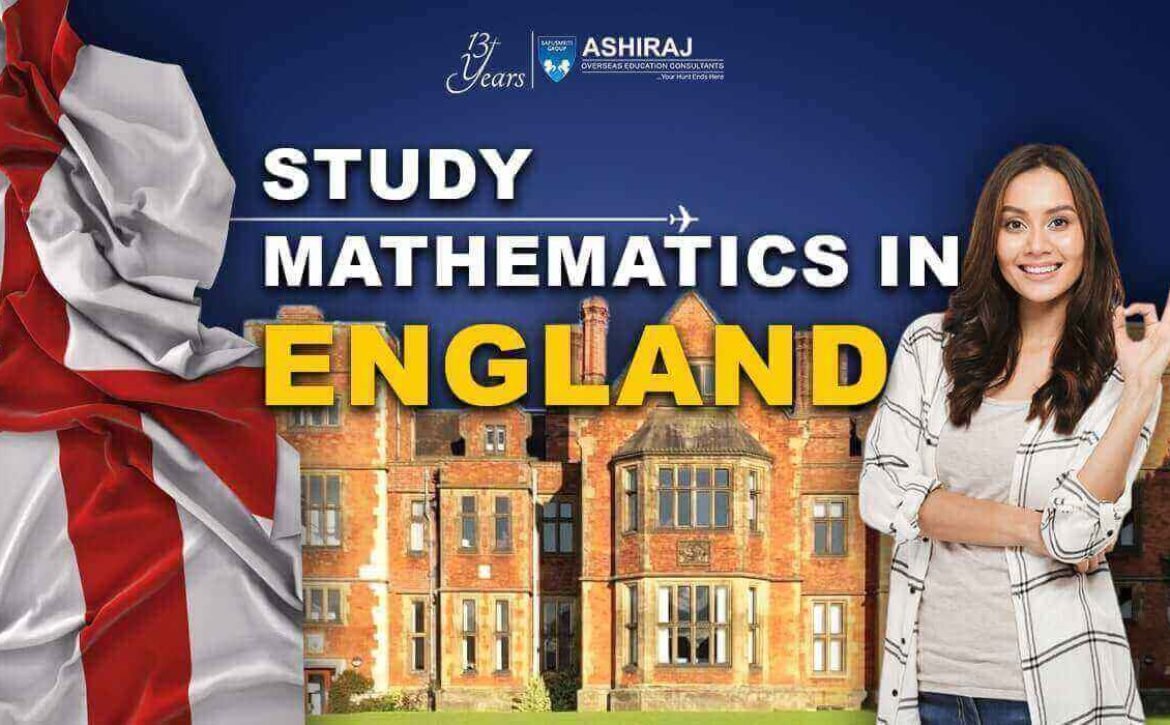
Mathematics in England
Mathematics in England has a rich and illustrious history that dates back centuries, woven intricately into the fabric of the nation’s intellectual landscape. From the groundbreaking contributions of luminaries like Sir Isaac Newton and Alan Turing to the innovative educational initiatives, England has been at the forefront of mathematical advancement. The discipline has played a pivotal role in shaping various sectors, from engineering and technology to finance and academia, making it a cornerstone of national progress and innovation.
In contemporary England, mathematics continues to hold a paramount position in education and research, with institutions such as the University of Cambridge and Imperial College London being globally renowned for their mathematical prowess. Moreover, initiatives like the National Curriculum ensure that mathematical literacy is prioritized from an early age, nurturing a new generation of problem solvers and critical thinkers. As England navigates the complexities of the modern world, the significance of mathematics remains undiminished, serving as both a practical tool and a source of profound intellectual inquiry.
Why to Study Mathematics in England?
- Rich History: England boasts a long and illustrious history of mathematical achievement, with notable figures like Sir Isaac Newton and Alan Turing making groundbreaking contributions to the field.
- Renowned Institutions: The country is home to prestigious universities renowned for their excellence in mathematics, such as the University of Cambridge and Imperial College London, providing unparalleled opportunities for education and research.
- Global Recognition: A degree in mathematics from an English institution carries significant international prestige, opening doors to career opportunities worldwide.
- Innovative Curriculum: England’s National Curriculum emphasizes mathematical literacy from an early age, ensuring students develop strong analytical and problem-solving skills essential for success in various professions.
- Cutting-Edge Research: English mathematicians are at the forefront of cutting-edge research in areas like pure mathematics, applied mathematics, and mathematical physics, offering students the chance to engage with the latest developments in the field.
- Diverse Career Paths: A solid foundation in mathematics opens doors to diverse career paths, from finance and engineering to academia and technology, providing graduates with a wide range of opportunities to make a meaningful impact.
Studying mathematics in England offers students a unique blend of tradition, innovation, and global recognition, making it an excellent choice for those passionate about pursuing a career in this dynamic and influential field.
Top Universities to Study Mathematics in England
University | QS World University Ranking 2023 | Type of University | Average Annual Fees | Programs Offered |
University of Cambridge | 1 | Public | £9,250 (UK/EU) | Mathematics, Applied Mathematics, Statistics |
Imperial College London | 8 | Public | £9,250 (UK/EU) | Mathematics, Mathematical Physics, Statistics |
University of Oxford | 4 | Public | £9,250 (UK/EU) | Mathematics, Pure Mathematics, Mathematical Sciences |
London School of Economics | 15 | Public | £9,250 (UK/EU) | Mathematics, Mathematical Economics, Statistics |
University College London | 10 | Public | £9,250 (UK/EU) | Mathematics, Mathematical Modelling, Statistics |
Studying mathematics in England offers students a plethora of options, with several prestigious universities excelling in this field. Here’s a list of the top 5 universities in England for mathematics based on the QS World University Rankings 2023, along with their average annual fees and programs offered. These institutions provide a diverse range of programs covering various aspects of mathematics, from pure mathematics to applied mathematics and statistics. Whether one aims to delve into theoretical research or apply mathematical principles in real-world scenarios, these universities offer exceptional education and opportunities for growth in the realm of Mathematics in England.
Course Curriculum for Mathematics in England
- Core Concepts: The curriculum covers fundamental mathematical concepts such as calculus, algebra, geometry, and probability theory, ensuring students develop a strong foundation in mathematical principles.
- Specialized Modules: Students have the opportunity to explore specialized areas of mathematics, including pure mathematics, applied mathematics, mathematical physics, and statistics, tailoring their studies to their interests and career goals.
- Practical Application: Emphasis is placed on the practical application of mathematical concepts, with coursework and projects designed to demonstrate how mathematics is used in real-world contexts such as engineering, finance, and scientific research.
- Critical Thinking Skills: The curriculum fosters critical thinking and problem-solving skills, challenging students to analyze complex problems, develop mathematical models, and devise innovative solutions.
- Research Opportunities: Students have access to research opportunities, enabling them to engage in cutting-edge research alongside faculty members and contribute to advancements in the field of Mathematics in England.
- Interdisciplinary Approach: Mathematics is integrated into various interdisciplinary fields, encouraging collaboration and cross-disciplinary learning experiences that broaden students’ perspectives and enhance their understanding of the interconnectedness of different areas of study.
Eligibility Criteria & Admission Requirements for MS in Mathematics in England
- English Language Proficiency: Applicants must demonstrate proficiency in English by providing either IELTS or TOEFL scores. The minimum required scores for IELTS are 6.5 overall with no less than 6.0 in each component, while for TOEFL, a minimum score of 90 is typically required.
- Standardized Test Scores: Candidates are often required to submit GRE or GMAT scores as part of their application. The minimum scores vary depending on the institution, but typically range between 160-165 for GRE Quantitative and 650-700 for GMAT.
- Educational Qualifications: Applicants must hold a bachelor’s degree in mathematics or a related field from a recognized institution. Transcripts demonstrating strong academic performance are usually required.
- Passport & Student Visa: International applicants must possess a valid passport and obtain a student visa to study in England. The visa application process may require additional documentation, including proof of financial stability and acceptance into a recognized educational institution.
- Academic Certificates: Applicants must provide copies of their academic certificates and transcripts, verifying their educational qualifications and achievements.
- Work Experience: While not always mandatory, some universities may consider relevant work experience in mathematics or related fields as part of the application criteria, particularly for postgraduate programs.
Table: Standardized Test Scores
Test | Minimum Score |
IELTS | Overall 6.5, with no less than 6.0 in each component |
TOEFL | Minimum 90 overall |
GRE | 160-165 in Quantitative section |
GMAT | 650-700 overall |
Meeting these eligibility criteria ensures that applicants are well-prepared to embark on their journey of studying Mathematics in England, equipping them with the necessary skills and qualifications for success in their academic pursuits.
Documents Required for Studying Mathematics in England
- Passport: A valid passport is essential for international students applying to study Mathematics in England, serving as proof of identity and nationality.
- Two Letters of Recommendation (LOR): Applicants typically need to submit LORs from academic or professional referees who can attest to their qualifications, skills, and suitability for the mathematics program.
- Statement of Purpose (SOP): An SOP is a personal statement outlining the applicant’s academic background, research interests, career goals, and reasons for choosing to study Mathematics in England.
- Curriculum Vitae (CV): A CV provides a comprehensive overview of the applicant’s educational qualifications, work experience, research projects, publications, and any other relevant achievements.
- Official High School Transcripts: Transcripts from high school or secondary education institutions are required to demonstrate academic performance and eligibility for higher education.
- Educational Certificates: Applicants must submit copies of their educational certificates, including diplomas or degrees earned from previous institutions.
- Work Experience Certificate: If applicable, a work experience certificate may be required to verify any relevant professional experience in mathematics or related fields.
- Proof of Financial Resources: International students must provide evidence of sufficient financial resources to cover tuition fees, living expenses, and other related costs while studying Mathematics in England.
Ensuring the timely submission of these documents is crucial for a smooth application process and admission to Mathematics in England programs.
Admission Process for Mathematics in England
- Research Universities: Begin by researching universities in England offering mathematics programs, considering factors such as rankings, faculty expertise, and program curriculum.
- Review Requirements: Carefully review the admission requirements for each university, including academic qualifications, standardized test scores, language proficiency, and document submission guidelines.
- Prepare Documents: Gather all required documents, including transcripts, standardized test scores (IELTS/TOEFL, GRE/GMAT), letters of recommendation, statement of purpose, CV, and proof of financial resources.
- Submit Application: Complete the online application form for your chosen universities, ensuring accuracy and completeness. Pay attention to application deadlines, as they vary depending on the institution and program.
- Wait for Response: After submitting your application, wait for a response from the universities. This may take several weeks or months, depending on the institution’s review process.
- Interview (if required): Some universities may conduct interviews as part of the admission process. Prepare for these interviews by reviewing your application materials and practicing common interview questions.
- Receive Offer: If successful, you will receive an offer of admission from the university. Review the offer carefully, including any conditions or deadlines for accepting the offer.
- Accept Offer and Visa Application: Once you have decided on a university, accept the offer and begin the process of applying for a student visa to study Mathematics in England.
Following these steps diligently will increase your chances of securing admission to a mathematics program in England and embarking on a rewarding academic journey in Mathematics in England.
“Education is the most powerful weapon which you can use to change the world.”
Nelson Mandela
Cost of Mathematics Course in England
- Tuition Fees: Tuition fees for mathematics programs in England vary depending on the university and level of study. On average, undergraduate tuition fees for Mathematics in England range from £9,000 to £18,000 per year for UK/EU students, while international students may pay higher fees, typically ranging from £15,000 to £25,000 per year.
- Living Expenses: In addition to tuition fees, students need to budget for living expenses such as accommodation, food, transportation, and personal expenses. The cost of living in major cities like London may be higher compared to other regions in England.
- Scholarships and Financial Aid: Many universities offer scholarships, grants, and financial aid packages to help students offset the cost of studying Mathematics in England. These scholarships may be based on academic merit, financial need, or specific criteria set by the university or external organizations.
- Part-time Work Opportunities: Some students choose to supplement their income by working part-time during their studies. However, it’s important to balance work commitments with academic responsibilities to ensure academic success.
- Budgeting and Planning: To manage expenses effectively, students should create a budget and plan their finances accordingly, taking into account both tuition fees and living expenses throughout their mathematics program in England.
Scholarships for Mathematics Courses in England
Scholarship Name | Amount | Application Deadline |
Rhodes Scholarship | Full tuition, living stipend, and travel expenses | Varies (usually October) |
Gates Cambridge Scholarship | Full tuition, living stipend, and travel expenses | Varies (usually December) |
Chevening Scholarship | Full tuition, living stipend, and travel expenses | Varies (usually November) |
Commonwealth Scholarship | Full tuition, living stipend, and travel expenses | Varies (usually November) |
University-specific Scholarships | Varies (partial to full tuition coverage) | Varies by university |
Scholarships for Mathematics in England offer financial support to students pursuing undergraduate or postgraduate degrees in mathematics or related fields. These scholarships cover various expenses such as tuition fees, living stipends, and travel costs, making higher education more accessible for talented individuals. Application deadlines for scholarships may vary, so prospective students need to research and plan accordingly to maximize their chances of securing financial assistance for their Mathematics in England studies.
Career Opportunities After Mathematics in England
Job Profile | Average Salary (£) |
Data Analyst | £30,000 – £40,000 |
Actuary | £50,000 – £70,000 |
Quantitative Analyst | £40,000 – £60,000 |
Statistician | £35,000 – £45,000 |
Operations Research Analyst | £35,000 – £50,000 |
Mathematics in England opens doors to diverse and lucrative career opportunities across various sectors. Data analysts utilize mathematical techniques to interpret and analyze data, earning an average salary ranging from £30,000 to £40,000 per year. Actuaries, who assess financial risks using mathematical models, can earn between £50,000 to £70,000 annually. Quantitative analysts, specializing in financial analysis and modeling, typically earn between £40,000 to £60,000 per year. Statisticians, who apply statistical techniques to analyze and interpret data, earn an average salary of £35,000 to £45,000 annually. Operations research analysts, who use mathematical methods to solve complex business problems, earn between £35,000 to £50,000 per year. With a solid foundation in mathematics, graduates in England can pursue rewarding careers with competitive salaries in diverse fields.
Frequently Asked Questions About Mathematics in England
Some of the top universities in England for mathematics include the University of Cambridge, Imperial College London, and the University of Oxford.
Yes, there are various scholarships available for students studying mathematics in England, including the Rhodes Scholarship, Gates Cambridge Scholarship, and university-specific scholarships.
Graduates of mathematics in England can pursue careers as data analysts, actuaries, quantitative analysts, statisticians, and operations research analysts, among others.
The average salary for mathematics graduates in England varies depending on the job role and experience level but typically ranges from £30,000 to £70,000 per year.
While a strong background in mathematics is beneficial, universities in England offer various entry levels, including foundation courses, for students with different levels of mathematical proficiency.
Admission requirements typically include academic transcripts, standardized test scores (such as IELTS/TOEFL, GRE/GMAT), letters of recommendation, statement of purpose, and proof of financial resources.
Yes, international students in England are usually allowed to work part-time during their studies, typically up to 20 hours per week during term time and full-time during vacations.
Yes, many universities in England offer opportunities for research in mathematics, allowing students to engage in cutting-edge research projects alongside faculty members.
The duration of a mathematics degree in England varies depending on the level of study. Typically, undergraduate programs last for three to four years, while postgraduate programs can range from one to two years.
Universities in England offer various support services for mathematics students, including academic advising, tutoring, career counseling, and access to mathematical resources and facilities.




